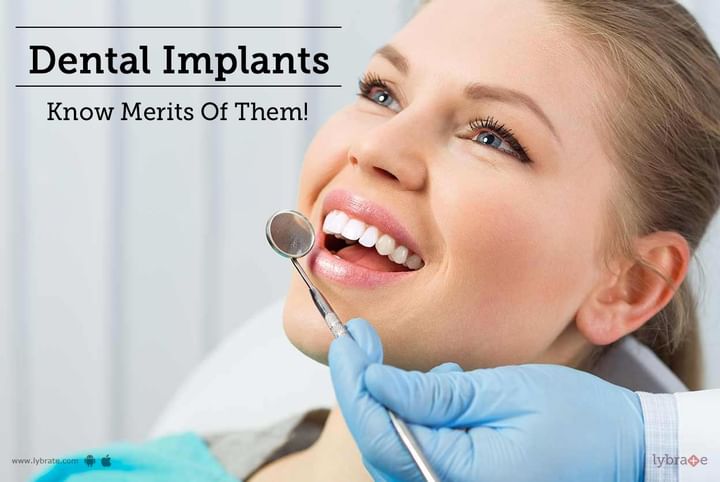Dental Implants - Know Merits Of Them!
Root canal therapy (RCT) followed by a crown is the most common mode of treatment for severely decayed teeth. However, this is not devoid of failure. In another case, if a tooth could not be salvaged by RCT, then extraction followed by a bridge (replacing the removed tooth with support from adjacent healthy teeth) became the next best option.
In both cases, especially latter, healthy teeth are being manipulated to support the tooth being replaced. The next quest was to work without touching the sound tooth. So, instead of taking support from adjacent teeth, thought was given to provide support from within the bone - very similar to how a natural tooth stands. The lost root is replaced by a compatible metal, on which a tooth crown is then built. This was the beginning of dental implants, which has gained significant popularity over the last two to three decades.
Advantages:
-Does not affect adjacent healthy teeth
-Functionally better, as it has stronger support from the bone
-More esthetically appealing
-Maintain facial bone and soft tissue structure
-Better for the gum health compared to bridges
-Easier oral hygiene practices
Mechanism: A strong, biocompatible material is used to make screws which are inserted into the bone. Titanium is the most preferred material, and because of its unique property of osseo-integration (fuses with the bone), it fuses with the bone to reduce bone loss after the tooth is gone. In most cases, the titanium screws which act as the root for the implants are placed into the bone and allowed for some weeks to few months to fuse with the bone. Then, an interim crown may be used until the screw is ready to take on an implant. The screw is periodically monitored and once it is completely accepted, then an abutment is placed on it. This acts like a stump or a root, over which a crown will be placed.
Though most implants are done for replacing single teeth, in many cases, multiple teeth may be replaced using abutments. If the missing teeth are adjacent to each other or in the same quadrant, then a denture might be overlaid over the abutments. Alternately, a partial denture may be used which is screwed over an abutment.
Maintenance: Regular brushing and flossing, rinsing and mouthwashing assume a greater significance in patients with implants. Also, regular visits to the dentist are a must.
Dental implants are a boon for missing teeth, with the various advantages. However, it is not for all, with excellent bone health being one of the prerequisites. A thorough dental examination will help determine if you are a right candidate. Visit your dentist to find out more.



+1.svg)
